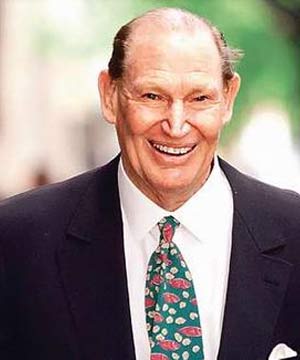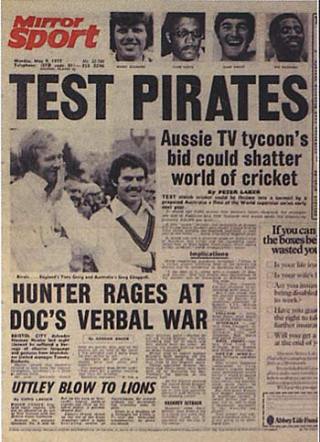

Surprisingly few cricket books have focused on a single match, but this gem is one of them. This is not cricket literature as therapy, but sometimes harsh reality is unavoidable. Haigh, leading cricket historian and writer of broad sympathies, delivers the definitive account. Almost everything since – including the recent controversial “100 Balls” announcement by the English authorities – has flowed from that bitterly contested demarche. One event above all stands out in cricket’s last half-century: Kerry Packer’s boldly entrepreneurial coup in 1977 that split the cricket world and directly led to the game’s capture by television, along with such innovations as floodlights, white balls and coloured clothing.
KERRY PACKER BOOK PROFESSIONAL
The 11 profiles end with Tom Richardson: Surrey and England’s great paceman of the 1890s, a cricketer of unrivalled heart and pluck, he found it hard (as so many professional sportsmen do) to handle retirement, dying in France in 1912 in dark, uncertain circumstances.

His forte, exemplified here, is getting behind the facade and sympathetically revealing difficult, even tormented lives, with most of his subjects martyrs, to a greater or lesser extent, to a game that can exact a heavy toll. Altogether it is Arlott at his humane, penetrating best.īased in the West Country, and a fount of gentle wisdom, Foot is one of the Guardian’s most cherishable cricket writers.

This collection of relatively early essays, inspired in part by William Hazlitt (one of his heroes), ranges from a near-rhapsodic evocation of two days of county cricket at Bath to a close socioeconomic analysis of the conditions of the professional cricketer.

Photograph: Adrian Murrell/Getty ImagesĪrlott was a published poet before, in the postwar years, turning himself into a top-flight cricket writer and legendary, Hampshire-burred radio commentator. Humane … John Arlott in the commentary box during his final Test match commentary in 1980. Ian Botham once described him as having “a degree in people”, and with characteristic sensitivity Brearley explores how playing cricket can produce at least as many lows as highs – a fact that far from every captain, whether on village green or Test arena, understands. Cricket’s natural escapist appeal often keeps its literature firmly within the boundary ropes but even more than Ross – and writing on the cusp of the postcolonial moment – James is exhilaratingly different.Ĭricket’s philosopher-king – and arguably England’s most successful captain – explains all … In the process, his lucid treatise not only guides the reader through the many tricks, traps and pitfalls of being a captain, but reveals just how complex, psychologically as much as tactically, the game is. Regularly placed at or near the top of lists of “best cricket books ever”, this is a compelling mixture of memoir, history, polemic and technical analysis, all knitted together with a sense of deep personal engagement. ”What do they know of cricket who only cricket know?” famously asks the West Indian writer and political activist. In his day job a renowned literary editor and accomplished poet, Ross here provides a seductive double narrative: the cricketing dramas and heroics, yes, but also a shrewd, lyrical snapshot of a country still finding its modern identity. Cardus’s reputation has waned in recent years (too many factual inaccuracies, note the pedants), but he remains the foundation stone.Ĭricket tours in the old days were leisurely affairs, starting with the long voyage out, and this account of the epic Ashes-winning tour under the determined if sometimes overly pessimistic captaincy of Len Hutton stands as a classic of the tour-book genre. He also appreciated how the rhythm and feel of a day’s play depends as much on the interaction between players and crowd as it does on the events in the middle. It was he, more than anyone before or, arguably, since, who exploited the possibilities of imaginatively turning the leading cricketers of the day into three-dimensional, almost novelistic characters. Modern cricket writing begins with Cardus, the working-class Mancunian autodidact who in the 1920s found fame reporting cricket matches for the Manchester Guardian. What unites the writers here is that, deep down, they all know the two essential things: that cricket really matters and that cricket really doesn’t matter at all.


 0 kommentar(er)
0 kommentar(er)
